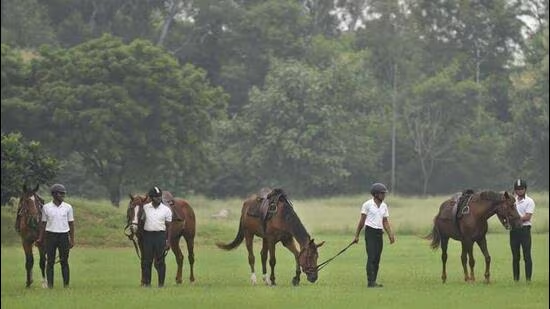



India has secured global recognition from WOAH for its first Equine Disease-Free Compartment (EDFC) at Meerut. This facility ensures sport horses meet international biosecurity standards, enabling their participation in global competitions and boosting horse-related activities. The EDFC is free from major equine diseases, reflecting India's commitment to robust animal health systems.

Copyright infringement not intended
Picture Courtesy: HINDUSTAN TIMES
The World Organisation for Animal Health (WOAH) officially recognized India's first Equine Disease-Free Compartment (EDFC) at the Remount Veterinary Corps (RVC) Centre & College in Meerut Cantonment, Uttar Pradesh.
An EDFC is a scientifically managed, globally recognized area where horses are guaranteed to be free from specific equine diseases.
It represents a defined sub-population of animals with a distinct health status, maintained through stringent biosecurity and animal husbandry practices.
Global Recognition => The World Organisation for Animal Health (WOAH), an intergovernmental organization responsible for improving animal health worldwide, officially recognizes these compartments. This recognition signifies that the EDFC adheres to the highest international standards, validating its disease-free status.
Operational Framework => The EDFC operates under comprehensive Standard Operating Procedures (SOPs) that cover all aspects of animal health and biosecurity. These SOPs ensure continuous commitment to international best practices in areas such as:
Diseases Declared Free in India's EDFC
India maintains its historical freedom from African Horse Sickness since 2014.
The EDFC is a major step towards allowing Indian sport horses to move internationally in compliance with stringent global biosecurity and animal health standards.
With robust biosecurity protocols and strict veterinary surveillance, Indian sport horses from this facility can now travel and compete abroad.
The EDFC supports the broader development of the entire horse-related ecosystem in India.
Source:
|
PRACTICE QUESTION Q. Define the 'One Health' approach. Discuss how this integrated framework is crucial for addressing contemporary challenges in animal health, especially in the context of zoonotic diseases. 150 words |






© 2026 iasgyan. All right reserved